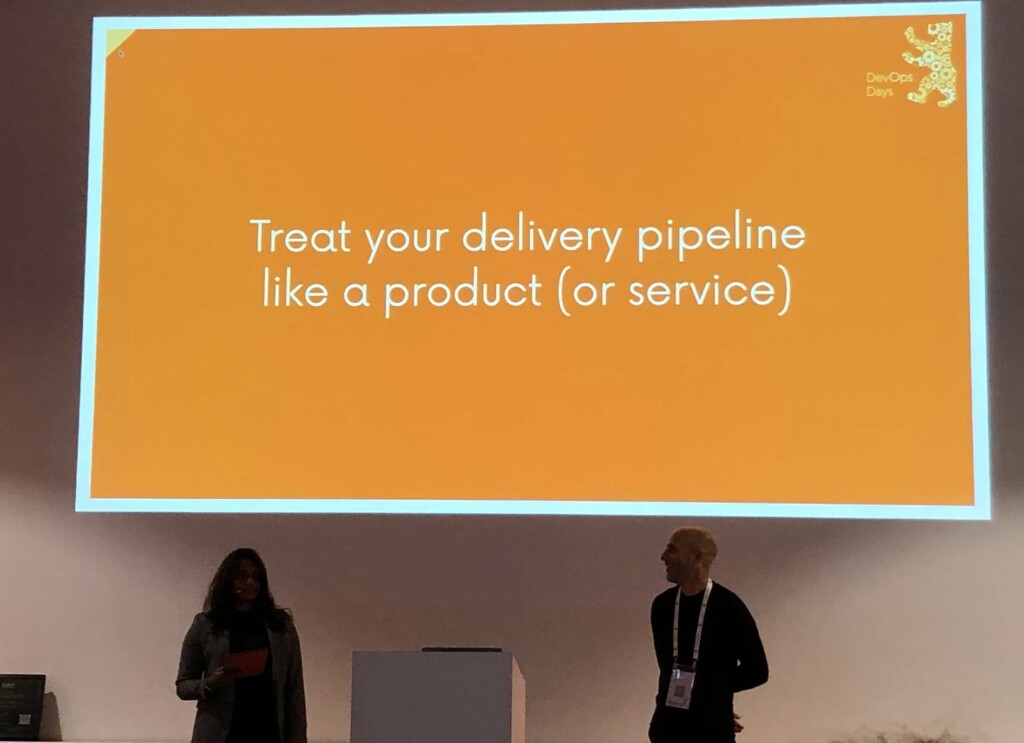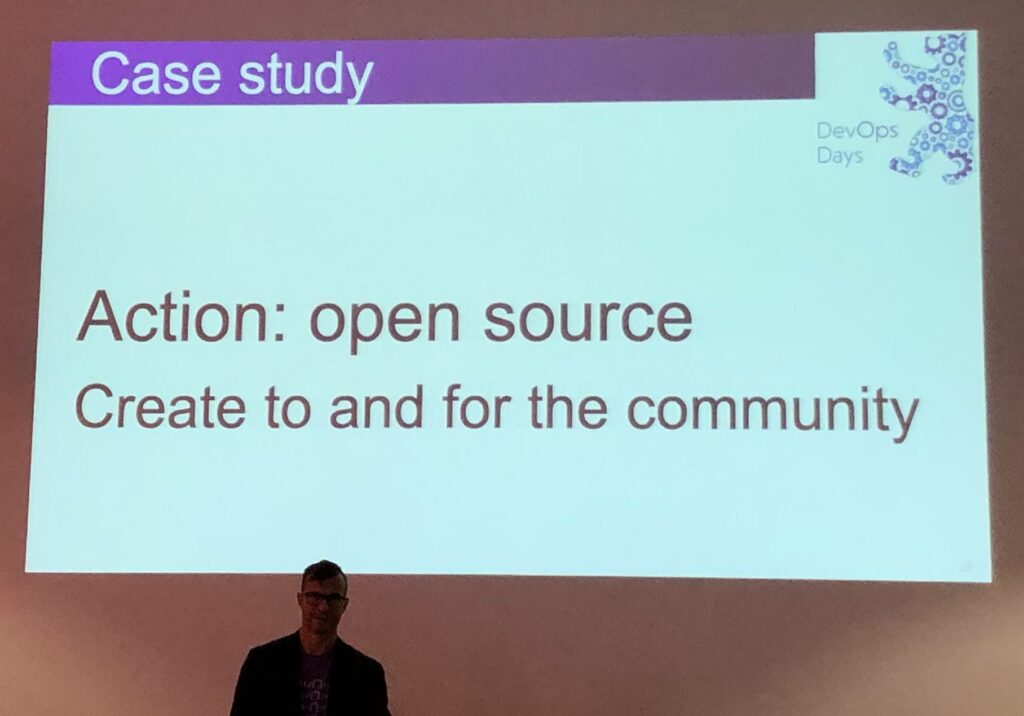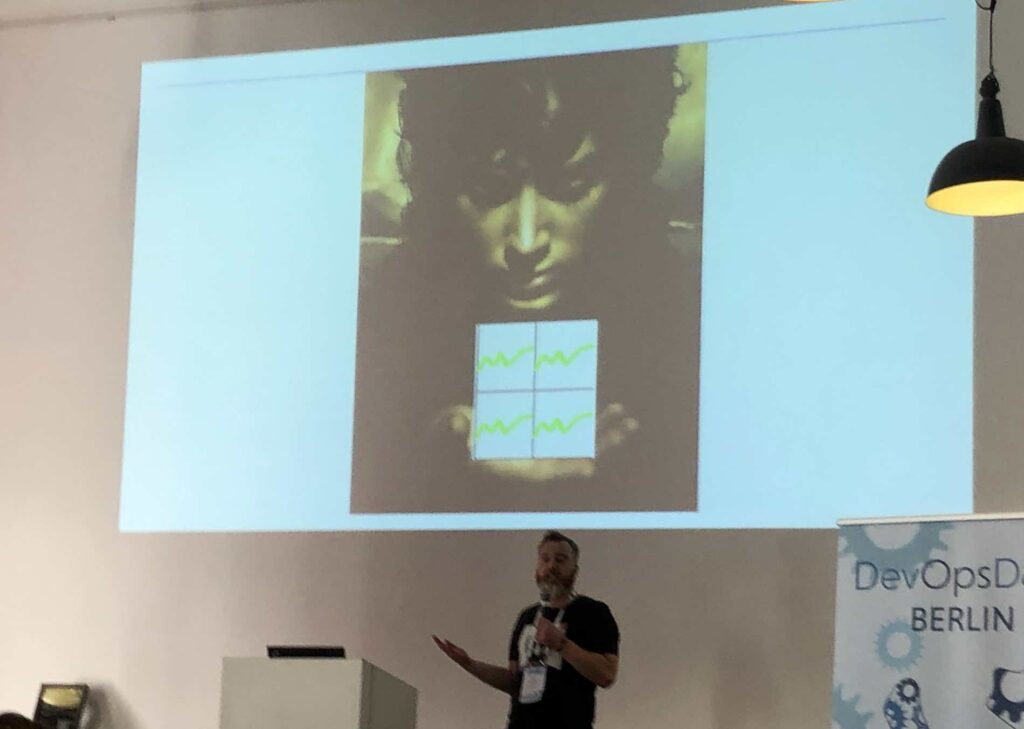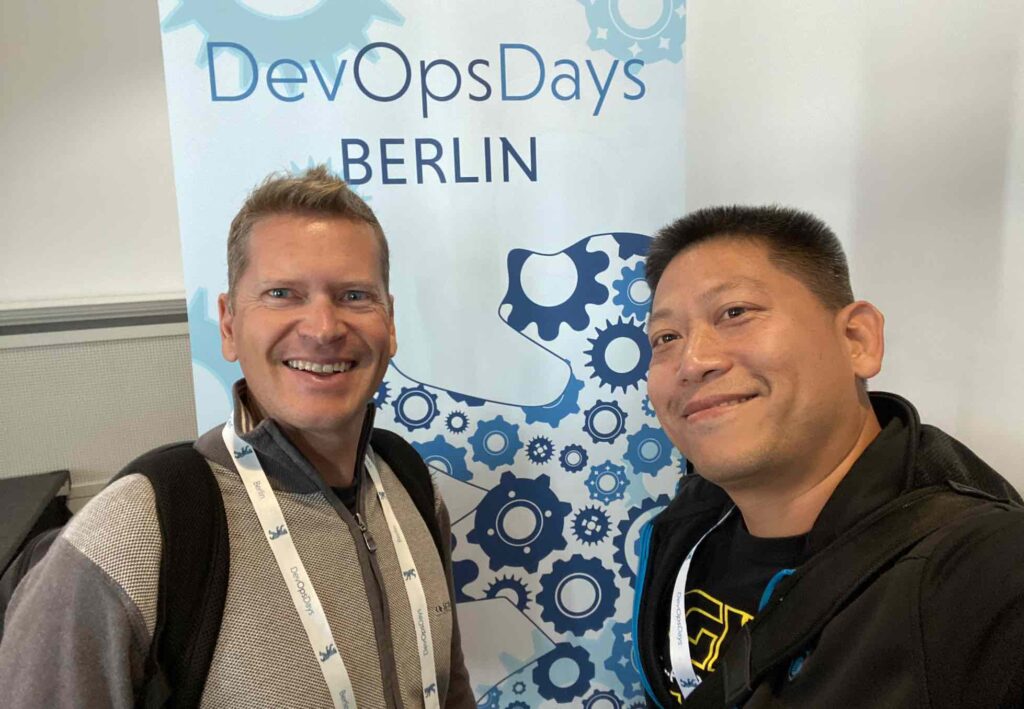This second day started with 4 sessions for the morning.

The first session was with two product managers, Marcel Britsch and Swathi Poddar, and their vision into DevOps.
As you’ll guess, it was non-technical but about principle around their DevOps point of view, comparing it to a product which can deliver values to customer.
So, how do they describe it ?
First, pipeline can be seen as a delivery, for that you needs inputs.
Inputs are coming from users and stakeholders filtered with your criterias, you have to choose with who your are dealing, then gather their needs.
Once ready with that, they should be categorized and prioritized.
At that point you are ready to see your pipeline as a product and this is where your “delivery pipeline” comes in.
It should match expectations to deliver the value, but not also, it should also be flexible and adaptable.
This is how you’ll be able to turns ideas into products or services for your users.

The second talk was from Radovan Baćović a speaker from the well known source version control code Gitlab.com.
He started with a funny introduction talking about their product to build their product to build their data product to analyze the data from their product, kind a bit confusing and recursive, but yes that’s it when you use your own product to version control what you are developing.
I think Matt Damon is still looking at his spinning top while trying to understand this last sentence…
Radovan gave us some numbers of gitlab.com company with for example this uncommon 0 office for more than 1300 team members in 65 countries actively working to improve the product.
Another one is the fact that there is more than 30 millions users of their platform, free, paid, on-prem or using in SaaS. Wow impressive!
He continues with some challenges people want to achieve, explaining that people want orchestrate, scale, synchronize team work, decrease time to market (TTM), increase visibility of their product. One of the answer can be open source.
And they push you to use it the more you can on your project by :
- fast iterating
- release frequently
- push frequently
To conclude, he gave some best “praxis” like being strict in your pipeline when it comes to test the code you just pushed and to automate as much as possible.
We then had again a short break.
The third talk was with Jemma Bolland, for a non-technical topic but more some tips for smoother, efficient, team collaboration meetings.
Based on her experience, she observed that when meeting are bad driven they can leads to people being bored or frustrated.
She also highlight the fact that sometimes people are uncomfortable with silence.
Another interesting observation is most of the time majority of people follow the global thinking but it’s also important to hear what minority think.
The last talk was from Yair Etziony, CEO of his DevOps company. he told us his long journey as a recruiter during Covid19 period, to hire people with a mindset that will fit his company.
Nothing very demanding, but nevertheless complicated.
To summarize his HR message is : “Tech is easy, people are hard”
His story is German centric but reflect the rise of DevOps engineer needs in this country.
Just before lunch, they set afternoon streams open sessions with topics from the first day that remains to be discussed.
After the lunch, we had again the 3 ignite punchy talks of 5min.
First was around all the bias we have on “Women in technology” from Iris Hunkeler which start from the very beginning with parents, society, culture, school.
Her message was to be aware of that and this will be a very good first step to break these stereotypes.

The second from Ivan Merrill, focuses on dashboards aberration, his message summarise perfectly the wrong way people are doing with dashboard. Yes some might think that dashboard can help solving incident, so for each incident a new dashboard will be created until being completely overwhelmed with dashboards. Then someone will come with “the dashboard” like a graal… which leads to a complex understanding of its usage and metrics consolidation. Another real world use case can be, oh a customer mentioned an issue, but based on confidence with tons of dashboards available, all is green… so reply will be “not our problem”, so sad way of solving an incident.
He ended with “stop being precious with your dashboards”, every incident is unique!
Last ignites was from Jorge Castro, an agile coach talking about BDD methodology where an application is documented and designed around the behavior a user expects.
The afternoon was then dedicated to open sessions.
Discussions were lights after this 2 days, so nothing particular to mention except the extension of Women in Tech ignite.
Don’t be afraid girls! Tech is cool, we need your point of view and support!
To conclude this event, I’ll say that we can feel maturity is growing in Germany around DevOps principles and for next event I hope they’ll focus on more technical intermediate to expert topics.
It’s time to return in Switzerland, so, Tchüss Berlin!

![Thumbnail [90x90]](https://www.dbi-services.com/blog/wp-content/uploads/2025/05/martin_bracher_2048x1536.jpg)
![Thumbnail [90x90]](https://www.dbi-services.com/blog/wp-content/uploads/2024/03/AHI_web.jpg)
![Thumbnail [90x90]](https://www.dbi-services.com/blog/wp-content/uploads/2022/08/HER_web-min-scaled.jpg)